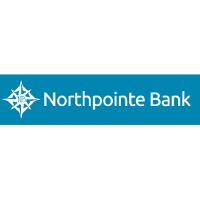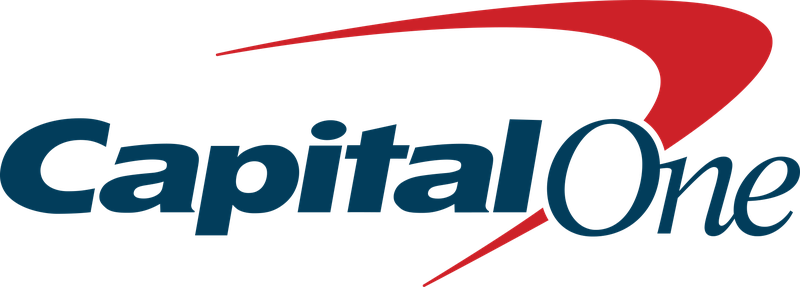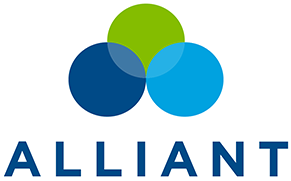Opening a savings account for kids is a great way to teach children about personal finance. The best savings accounts for kids offer low minimum deposits and fees, competitive APYs, and allow parents to keep tabs on their child's spending.
While some savings accounts are specifically marketed as savings accounts for kids, many standard savings accounts will allow you to name a minor as the joint account holder. Check with your bank or credit union about whether you can open a joint account with your child as the co-owner.
Here's our list of the best savings accounts for kids.
Show Best Offers Available in
| Offer | APY | Minimum to Earn APY | Rating | Next Steps |
|---|---|---|---|---|
|
Member FDIC.
Rating image, 5.00 out of 5 stars.
5.00/5
Our ratings are based on a 5 star scale.
5 stars equals Best.
4 stars equals Excellent.
3 stars equals Good.
2 stars equals Fair.
1 star equals Poor.
We want your money to work harder for you. Which is why our ratings are biased toward offers that deliver versatility while cutting out-of-pocket costs.
|
2.5%
Min. to earn: $0
|
Rating image, 5.00 out of 5 stars.
5.00/5
Our ratings are based on a 5 star scale.
5 stars equals Best.
4 stars equals Excellent.
3 stars equals Good.
2 stars equals Fair.
1 star equals Poor.
We want your money to work harder for you. Which is why our ratings are biased toward offers that deliver versatility while cutting out-of-pocket costs.
|
$0
|
|

First Internet Bank Tomorrow's Tycoons
Rating image, 4.00 out of 5 stars.
4.00/5
Our ratings are based on a 5 star scale.
5 stars equals Best.
4 stars equals Excellent.
3 stars equals Good.
2 stars equals Fair.
1 star equals Poor.
We want your money to work harder for you. Which is why our ratings are biased toward offers that deliver versatility while cutting out-of-pocket costs.
|
0.80%
Min. to earn: $0
|
Rating image, 4.00 out of 5 stars.
4.00/5
Our ratings are based on a 5 star scale.
5 stars equals Best.
4 stars equals Excellent.
3 stars equals Good.
2 stars equals Fair.
1 star equals Poor.
We want your money to work harder for you. Which is why our ratings are biased toward offers that deliver versatility while cutting out-of-pocket costs.
|
$0
|
|
|
Member FDIC.
Rating image, 3.00 out of 5 stars.
3.00/5
Our ratings are based on a 5 star scale.
5 stars equals Best.
4 stars equals Excellent.
3 stars equals Good.
2 stars equals Fair.
1 star equals Poor.
We want your money to work harder for you. Which is why our ratings are biased toward offers that deliver versatility while cutting out-of-pocket costs.
|
0.01%
Min. to earn:
|
Rating image, 3.00 out of 5 stars.
3.00/5
Our ratings are based on a 5 star scale.
5 stars equals Best.
4 stars equals Excellent.
3 stars equals Good.
2 stars equals Fair.
1 star equals Poor.
We want your money to work harder for you. Which is why our ratings are biased toward offers that deliver versatility while cutting out-of-pocket costs.
|
|
|
|
Alliant Kids Savings Account
Federally insured by NCUA.
Rating image, 4.75 out of 5 stars.
4.75/5
Our ratings are based on a 5 star scale.
5 stars equals Best.
4 stars equals Excellent.
3 stars equals Good.
2 stars equals Fair.
1 star equals Poor.
We want your money to work harder for you. Which is why our ratings are biased toward offers that deliver versatility while cutting out-of-pocket costs.
|
3.10%
Min. to earn: $100
|
Rating image, 4.75 out of 5 stars.
4.75/5
Our ratings are based on a 5 star scale.
5 stars equals Best.
4 stars equals Excellent.
3 stars equals Good.
2 stars equals Fair.
1 star equals Poor.
We want your money to work harder for you. Which is why our ratings are biased toward offers that deliver versatility while cutting out-of-pocket costs.
|
$100
|
|

Northpointe Bank Kids Savings
Rating image, 4.00 out of 5 stars.
4.00/5
Our ratings are based on a 5 star scale.
5 stars equals Best.
4 stars equals Excellent.
3 stars equals Good.
2 stars equals Fair.
1 star equals Poor.
We want your money to work harder for you. Which is why our ratings are biased toward offers that deliver versatility while cutting out-of-pocket costs.
|
Up to 1.5%
Rate info
1.5% on first $1,000; 1.11% on amounts between $1,000-$9,999.99; 0.34% on amounts of $10,000 and higher
Min. to earn: $0
|
Rating image, 4.00 out of 5 stars.
4.00/5
Our ratings are based on a 5 star scale.
5 stars equals Best.
4 stars equals Excellent.
3 stars equals Good.
2 stars equals Fair.
1 star equals Poor.
We want your money to work harder for you. Which is why our ratings are biased toward offers that deliver versatility while cutting out-of-pocket costs.
|
$0
|
|
Show Best Offers Available in
Capital One Kids Savings Account

- High APY
- No minimum to earn APY
- No fees
- No minimum age requirement
- Easy to set up automatic savings
- Limited education features
- Won't automatically convert to a regular savings account when child turns 18
Though some kids' savings accounts at credit unions boast higher APYs, the Capital One Kids Savings Account has the highest APY we could find at a major bank. The account has no monthly fees or minimum opening deposit, both of which are major pluses for a kids' bank account. Children of any age can open this account with an adult, though if the child is younger than 12, the adult co-owner must be their parent or guardian.
First Internet Bank Tomorrow's Tycoons

- High APY
- No monthly fees
- No monthly minimum account balance
- Automatically converts to Free Savings account when child turns 18
- Minimum $100 opening deposit
- Limited educational features
- No ATM card
The First Internet Bank Tomorrow's Tycoons account pays an above-average APY and has no monthly fees. Though the account requires an upfront $100 minimum opening deposit, there's no minimum balance required to earn APY or avoid fees. Overall, it's a good pick for a kid who already has a bit of savings stashed in their piggy bank.
Wells Fargo Way2Save Savings

- Easy access to savings
- Account fees can be waived
- Save As You Go helps you save money
- Low APY
- No check-writing privileges
- Potential for a $5 monthly fee
The Wells Fargo Way2Save Savings offers a safe, FDIC-insured place to store savings, as well as numerous ways to withdraw and deposit cash. It has an extremely low APY (no tiers earn at a higher rate), but if in-person banking is important to you, this account could offer more flexibility than online banks. The account isn't designed specifically for kids, but minors 13 and up can be a primary account owner, while kids 12 and younger can open an account with an adult co-owner. The $5 monthly fee is waived for account owners who are 24 or younger.
Read the full Wells Fargo Way2Save Savings review.
Alliant Kids Savings Account

- Competitive APY
- No monthly maintenance fee when you choose electronic statements
- ATM access
- Minimum balance requirement for APY
- Requires credit union membership to open account
The Alliant Kids Savings Account offers one of the highest APYs you'll find for kids, but you must maintain an average monthly balance of at least $100 to qualify. Alliant is a credit union, and is NCUA-insured up to the legal limit, so your money is safe. Just know you'll be required to become a credit union member -- an easy process -- in order to open an account.
Northpointe Bank Kids Savings

- Competitive APY
- No monthly fees
- No minimum to earn APY
- Automatically converts to Ultimate Savings account when child turns 18
- Requires $10 minimum opening deposit
- Limited education materials
- Limited branch access
Northpointe Bank Kids Savings account offers a tiered APY that's extremely competitive for the first $10,000 worth of savings. The bank also lets kids choose a prize when they make an in-person deposit, though Northpointe only has one branch (it's located in Grand Rapids, Michigan). The account is open to young savers anywhere in the U.S., though, and given the generous APY, it's worth a look even if you can't bank in person.
How to choose the best savings accounts for kids
To choose the best kids' savings account, these are the factors that matter most:
- Low minimum balance and deposit requirements: Because kids are typically starting with a small amount of savings, look for a savings account with a low minimum opening deposit, as well as a low minimum balance requirement.
- No monthly fees: Fees eat away at your savings, especially when you have a relatively small balance. For that reason, you want a kids' savings account that either doesn't charge a monthly fee or waives the fee for account holders younger than 18.
- APY: Finding a savings account for kids that pays a high APY is challenging at major banks. If you're a member of a local credit union, ask about whether it offers children's savings accounts, as many offer far more competitive APYs.
- Parental monitoring features: To ensure that your child is managing their savings wisely, look for an account that makes it easy to keep track of their activity.
- Educational features: Any account that includes features that teach children about personal finance gets bonus points.
What is a kids' savings account?
A kids' savings account is a joint bank account where someone younger than 18 co-owns the account with an adult who's typically their parent or legal guardian. Many bank accounts allow a minor to be an account co-owner with an adult, but children's savings accounts are marketed specifically as products that are available to people under 18. Many of the best kids' savings accounts automatically convert to a standard savings account once the child turns 18.
How to compare kids' savings accounts
There are many factors to consider when you're choosing a savings account for your child, but here are some of the most important ones.
Monthly fees
Since kids tend to have low savings account balances, avoiding monthly fees is a must. If the account will automatically convert into a regular savings account once your child turns 18, look for an account that also charges minimal fees in its standard savings accounts.
APY
Finding a high-yield savings account for kids is tough, but the higher the APY, the better. If you're a credit union member or you're eligible to join one, ask if it offers a savings account for kids, as the APYs are often way more competitive than you'd get at a major bank. That said, since kids often don't have huge account balances, avoiding fees is probably more important than a high APY.
Minimum opening deposit
One of the most important personal finance lessons is to save a little bit each time you get paid, even if you can't save much. A high minimum opening deposit can discourage a beginning saver.
FDIC insurance
Make sure your child's money is safe by verifying that the institution you choose is covered by the Federal Deposit Insurance Corporation (FDIC), which typically insures bank deposits up to $250,000 per depositor, per institution. If you're banking with a credit union, the funds should be insured by the National Credit Union Administration (NCUA), which is the credit union equivalent of the FDIC.
Educational features
If your goal is to teach your child about the importance of saving money and concepts like compound interest, look for a bank account that includes educational resources. However, if you're willing to take the time to teach your kids about personal finances, these resources may be less important.
Convenience
If you want to teach your child about banking in person, look for a bank with physical branches near you. But if in-person access is less important, look for an institution with a highly rated banking app. When your child is young, a no-frills savings account may suffice. But as they get older, you'll want a savings account you can connect to a checking account for teens.
How can I open a savings account for kids?
Some banks let you open a bank account for kids online, while others will require you to go in person. Regardless, you'll need to provide the following:
- Name, date of birth, and Social Security number for both you and your child
- Government-issued photo ID for you, such as a driver's license or passport
- Contact information, such as your address, phone number, and email address
- Opening deposit, if it's required
Is it safe to open a savings account for kids?
As long as you choose an institution that's federally insured by the FDIC or NCUA, your child's deposits will be safe. If you're worried your child will mismanage their money, look at the account's parental monitoring tools, as well as the institution's policies. Some banks require parental approval for any account withdrawals made by the child.
Our savings account methodology
At The Motley Fool Ascent, we rate savings accounts on a five-star scale (1 = poor, 5 = best). We evaluate all savings accounts across four main criteria: annual percentage yield (APY), brand and reputation, fees and minimum requirements, and perks that really make a difference -- think ATM access, linked checking accounts, or even branch access.
Our scores are weighted as:
- APY: 50%
- Brand and reputation: 20%
- Fees and minimums: 15%
- Other perks: 15%
Our aim is to maintain a balanced list featuring top-scoring products from reputable brands offering competitive APYs and standout features. Learn more about how The Motley Fool Ascent rates bank accounts.
Banks we monitor
-
Here are the financial institutions we've evaluated in our research:
Alliant, Ally, All America Bank, American First Credit Union, American Express® National Bank, Arvest Bank, Aspiration, Axos Bank, B2 Bank, Bank of America, Bank5 Connect, Bank7, Barclays, Bask Bank, Betterment, Bluevine, BMO, Bread Financial, Capital One, Carver Federal Savings Bank, Charles Schwab Bank, Chase, Chime, CIT, Citibank, Citizens Bank, Citizens Savings Bank, Columbia Bank, Connexus Credit Union, Consumers Credit Union, Copper, Cross River Bank, Customers Bank, Discover® Bank, E*TRADEEdward Jones, EverBank, Fidelity, Fifth Third Bank, First Foundation Bank, First Internet Bank of Indiana, First National Bank, First Tech Federal Credit Union, Flushing Bank, Freedom Bank, Generations Bank, GN Bank, Golden 1 Credit Union, Greenlight, Harborstone Credit Union, HSBC, Huntington Bank, Ivella, Kabbage by American Express, KeyBank, Laurel Road, LendingClub, Liberty Bank, Liberty Federal Credit Union, Marcus by Goldman Sachs, Mercury, Municipal Credit Union, Mutual of Omaha, NASA Federal Credit Union, Nationwide Bank, Navy Federal Credit Union, NBKC Bank, New York Community Bank, Northpointe Bank, Novo, OceanFirst Bank, Old National Bank, ONE Finance, OneUnited Bank, Oxygen, Pacific Western Bank, PNC Bank, Ponce Bank, Popular Direct, Presidential Bank, Prime Alliance Bank, Quontic, Radius, Raisin, Redneck Bank, Regions Bank, Relay, Republic Bank of Chicago, Revolut, Salem Five Bank, Sallie Mae, Santander Bank, SchoolsFirst Federal Credit Union, Simple, SoFi, Synchrony Bank, Tab Bank, TD Bank, Third Federal, Truist Bank, U.S. Bank, UFB, Upgrade, USAA, Valley Bank, Vanguard, Varo Bank, Vio Bank, Wealthfront, Wells Fargo, Western Alliance Bank, and Zeta.
FAQs
-
By law, people under 18 generally can't open a bank account on their own. However, there's typically no minimum age requirement for a child if their parent or guardian opens a bank account on their behalf if the parent or guardian is the joint account owner or custodian. Check with your financial institution about its policies.
-
Kids' savings accounts are different from 529 plans. While both are popular options for building savings on a child's behalf, a 529 plan is a tax-advantaged account that's designed specifically for education savings.
-
If the goal is to provide your child with savings that they'll be able to spend however they want, a kids' savings account is your best bet. But if you're seeking to save money for college, consider a tax-advantaged education account, like a 529 plan.
Our Banking Experts
We're firm believers in the Golden Rule, which is why editorial opinions are ours alone and have not been previously reviewed, approved, or endorsed by included advertisers. The Ascent, a Motley Fool service, does not cover all offers on the market. The Ascent has a dedicated team of editors and analysts focused on personal finance, and they follow the same set of publishing standards and editorial integrity while maintaining professional separation from the analysts and editors on other Motley Fool brands.


